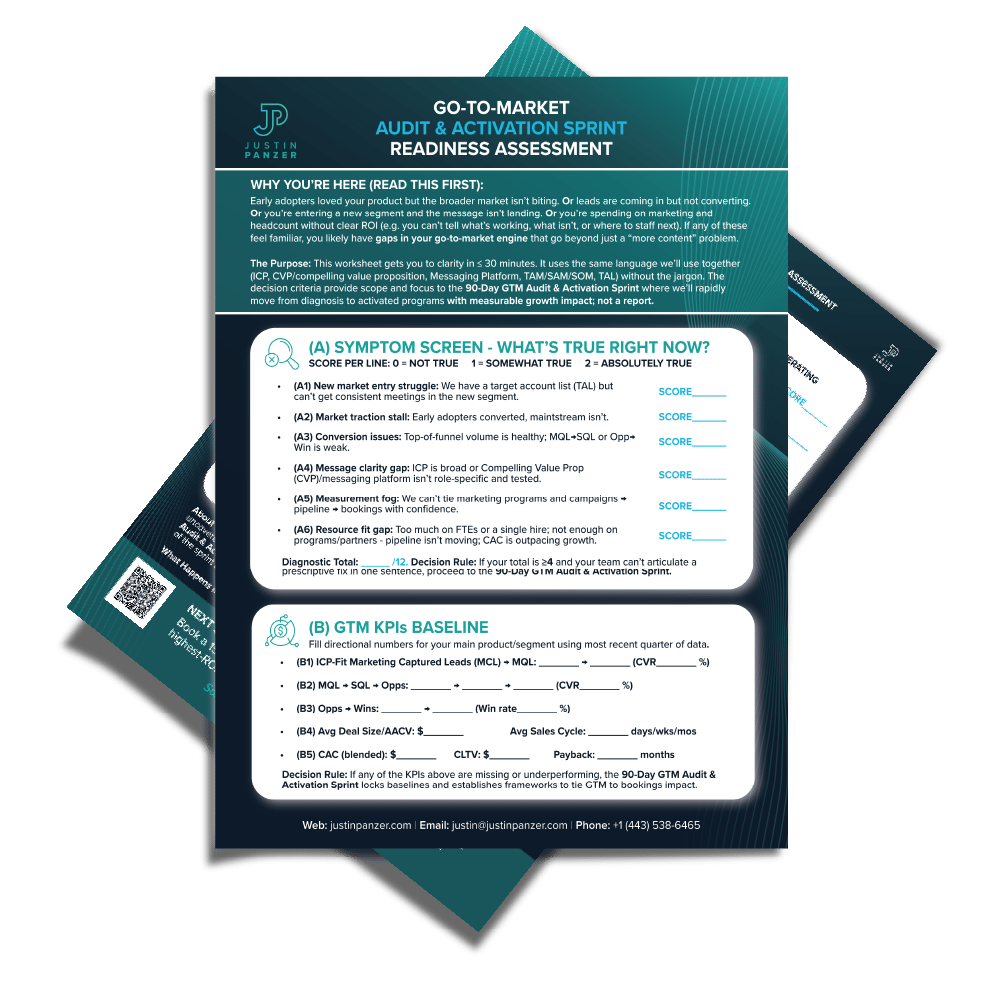GTM Audit & Activation Sprint Readiness Assessment
Early adopters loved your product but the broader market isn’t biting. Or leads are coming in but not converting. Or you’re entering a new segment and the message isn’t landing. Or you’re spending on marketing and headcount without clear ROI (e.g. you can’t tell what’s working, what isn’t, or where to staff next). If any of these feel familiar, you likely have gaps in your go-to-market engine that go beyond just a “more content” problem
Why take this assessment?: This worksheet gets you to clarity in ≤ 30 minutes. It uses the same language we’ll use together (ICP, CVP/compelling value proposition, Messaging Platform, TAM/SAM/SOM, TAL) without the jargon. The decision criteria provide scope and focus to the 90-Day GTM Audit & Activation Sprint where we’ll rapidly move from diagnosis to activated programs with measurable growth impact; not a report.
What Happens in 90 Days?:
- Days 0-14 = Assess & Align: Validate ICP, finalize TAL, and lock a concise Messaging Platform/CVP by role; establish baseline funnel metrics and a risk scorecard; draft lighthouse campaign concept & content brief template.
- Days 15-45 = Design & Instrument: Prioritize offers/channels; develop campaign & content briefs and an editorial cadence; instrument the essentials (lead stages, scoring/routing, lightweight attribution) with executive dashboards; finalize the enablement kits.
- Days 46-90 = Activate & Tune: Launch 1–2 lighthouse campaigns, fix conversion bottlenecks, and begin weekly review cadence tied to campaigns → pipeline → bookings → ARR; ship campaign briefs/assets.

With this worksheet we'll prepare for a 90-Day GTM Audit & Activation Sprint by:
Screening for symptoms of GTM gaps by looking at what's true right now.

Reviewing KPI baselines to understand what's performing and what's not.

Scoring the current capabilities of your GTM function to set sprint scope and priorities.

Pinpointing risks and locking priorities based on immediacy and severity.

